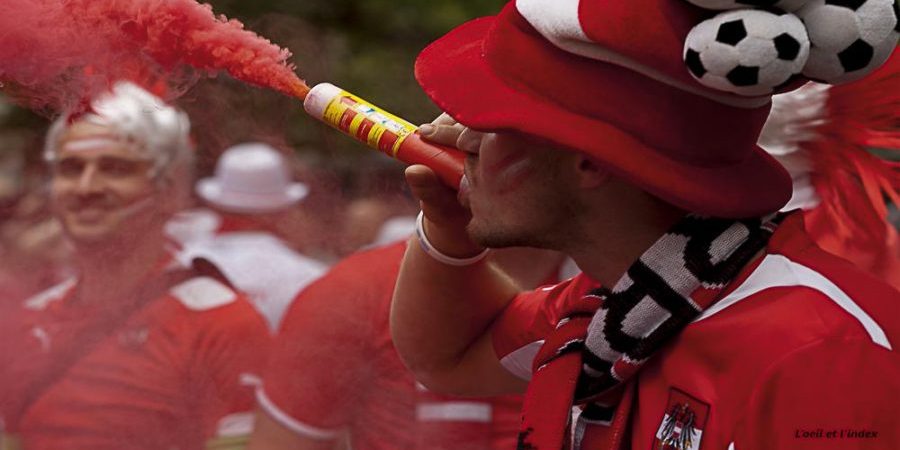Euro 2016: a political display of a frustrated Europe
Right up until the fighting started, Euro 2016 looked like great fun. Even afterwards the heady cocktail of bonhomie, violence, and first touches is as fascinating as a work hung in the Louvre, at least from afar. It’s a mess, but this display of a continent still ill at ease, and changing quickly, is far more revealing that meets the eye.
Football unites us like few other things on this continent. At no other event in Europe is there such a mash of colour, of strange accents and unfamiliar customs. The frazzled brains and acrid sunburn of a million supporters can almost be smelt across the channel. It highlights the classic European traits of expansionism and openness, while clouding above the event like a fog of teargas – the lurking of a familiar, violent nationalism.
There doesn’t seem to be any correlation between fan violence and country of origin. Every country will have its trouble makers, and the main culprits England, Russia, Hungary, and Croatia, don’t seem obviously linked, although it’s tempting to speculate on former and current imperial ambitions. This bloody past is perhaps why the finals are a party with an edge – they are an unspoken battle of ideas fighting either to celebrate, or bury these past conflicts.
It highlights the classic European traits of expansionism and openness, while clouding above the event like a fog of teargas – the lurking of a familiar, violent nationalism.
Not many politicians have been rash enough to make political capital out of notable fan disturbances barring, perhaps predictably, Russia. The SNP, tragicomically, have taken the opportunity of English fans getting beaten up in Marseilles to remark on Scotland’s ‘world class’ supporters, who aren’t present because their team, incidentally, isn’t good enough.
It is the fans themselves, rather than the grown-ups back home, that give the most tantalising insights into the continent today. Some clearly see themselves as just as important as the players. A proud fan explains that “Russian hooligans often follow a very healthy way of life… the English like drinking more, and when they drink they lose”.
It is the fans themselves, rather than the grown-ups back home, that give the most tantalising insights into the continent today
The different conventional masculinities jump out. The competitive drinking and proto-paramilitary behaviour in one corner, versus Welsh fans forming a guard of honour for newly-weds, or Irish fans randomly changing a car tyre, in the other. It’s a shame that the more toxic masculine behaviours gain the most publicity, or perhaps even predominate. Conversely, this makes a persuasive case for the comparative merits of the women’s game, growing fast in Germany and England.
Potentially the most seismic single political event in 20 years, the Brexit vote, will have taken place three days after the last England group game. A strong performance from the Three Lions, 50 years after 1966 – and all that – will probably boost sentiment towards ‘vote leave’. Sport has the effect of vastly changing our emotions, and we are all the better for it, even if the memories they provide are illusory.
It’s a shame that the more toxic masculine behaviours gain the most publicity, or perhaps even predominate
In France which is still technically under a state of emergency, and Europe where terror plots are in danger of becoming less than a novelty, a good old fashioned football championships is a remembrance of a more innocent age. We should be thankful now, more than ever, that this is an event that highlights where Europe stands today, and that the fans are fighting in peace.

Comments